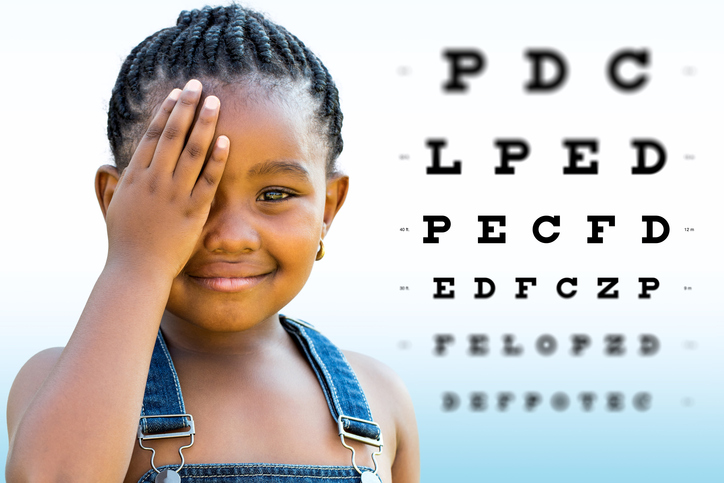
A Guide to Children’s Eye Care
From their first gaze at the world to exploring their surroundings, children rely on their eyes to learn and grow. Proper eye care is essential to ensure their visual health, which impacts their overall development. In this blog, we’ll explore the importance of children’s eye care, common eye issues in kids, and practical tips for maintaining their eye health.
The Significance of Early Eye Care
Early eye care is crucial because a child’s vision develops rapidly during the early years of life. Regular eye check-ups can help identify and address any issues that may affect their vision and learning abilities. Undetected vision problems can lead to developmental delays and academic difficulties, so proactive care is vital.
Signs of Eye Problems in Children
Recognizing signs of potential eye problems is essential for early intervention. Keep an eye out for symptoms like frequent eye rubbing, excessive tearing, sensitivity to light, squinting, or complaints of blurred vision or headaches. If your child displays any of these signs, it’s advisable to consult an eye care professional promptly.
Common Eye Conditions in Children
Several eye conditions are common in children, including:
- Amblyopia (Lazy Eye): This condition occurs when one eye is weaker than the other, and the brain favors the stronger eye. Early diagnosis and treatment, such as patching or eye drops, can help strengthen the weaker eye.
- Strabismus (Crossed Eyes): Strabismus is characterized by misalignment of the eyes. Treatment may include eyeglasses, eye exercises, or surgery to correct the alignment.
- Refractive Errors: Myopia (nearsightedness), hyperopia (farsightedness), and astigmatism can affect children’s vision. Prescription eyeglasses or contact lenses can correct these refractive errors.
- Conjunctivitis (Pink Eye): This contagious eye infection can cause redness, itching, and discharge. Prompt treatment and good hygiene practices can prevent its spread.
- Blocked Tear Ducts: Some infants are born with blocked tear ducts, leading to excessive tearing and discharge. Most cases resolve on their own, but some may require medical intervention.
The Role of Regular Eye Exams
Routine eye exams are essential for children to detect eye problems early. The American Optometric Association recommends the first eye exam at six months of age, followed by exams at age three and before starting school. Regular check-ups help ensure that your child’s vision is developing correctly and allow for timely intervention if needed.
The Impact of Digital Devices
In today’s digital age, children are exposed to screens more than ever before. Excessive screen time can strain their eyes and potentially lead to digital eye strain, characterized by symptoms like dry eyes, headaches, and blurred vision. Encourage regular breaks, maintain proper screen distance, and ensure adequate lighting to protect your child’s eyes during screen time.
Healthy Eye Care Habits
Teaching children good eye care habits from a young age sets the foundation for a lifetime of healthy vision. Some key habits include:
- Frequent Handwashing: Encourage regular handwashing to prevent the spread of eye infections.
- Proper Lighting: Ensure that your child’s workspace and reading areas have adequate lighting to reduce eye strain.
- Balanced Diet: A diet rich in fruits and vegetables, especially those high in vitamin A and beta-carotene, supports eye health.
- Outdoor Play: Spending time outdoors is linked to reduced myopia (nearsightedness) risk in children. Encourage outdoor play and breaks from screen time.
- Protective Eyewear: If your child participates in sports or activities that pose a risk of eye injury, ensure they wear appropriate protective eyewear.
Sun Protection for Eyes
Just as you protect your child’s skin from the sun’s harmful UV rays, it’s essential to protect their eyes as well. UV exposure can lead to eye conditions later in life, including cataracts and macular degeneration. Invest in quality sunglasses that provide UV protection for your child, especially when they are outdoors.
Encouraging Open Communication
Fostering open communication about eye health with your child is crucial. Encourage them to express any discomfort or changes in their vision. Address their questions and concerns, making them feel comfortable discussing their eye health with you and their eye care professional.
Seeking Professional Guidance
If you notice any signs of eye problems or have concerns about your child’s vision, don’t hesitate to consult an eye care specialist. They can perform comprehensive eye exams, diagnose any issues, and recommend appropriate treatments or interventions.
A Lifetime of Healthy Vision
In conclusion, prioritizing children’s eye care is essential for their overall development and well-being. Early detection and treatment of eye problems can make a significant difference in their quality of life. By promoting healthy eye care habits, scheduling regular eye exams, and addressing any concerns promptly, you can help ensure that your child enjoys a lifetime of healthy vision and the opportunities it brings. Looking for an eye care specialist in Eltham? Check out Valley Vision, for reliable, efficient and effective eye care and advice.
You May Also Like

Top 5 Tips To Understand And Talk To Your Teenagers
2022-09-28
Top Fruits for Child Growth
2021-10-29

